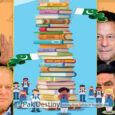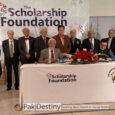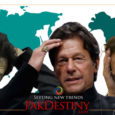
By Maryam Farooq Nisar
During these perilous times all sectors of societies globally are going through terrible times.
The entire world is fighting against a relentless, toxic and imperceptible deadly disease. To date this menace has no
cure.
Different sectors of the society are being affected by this deadly
‘enemy’ by various means. Our production and distribution systems are
sealed, supply lines censored, and educational institutions closed for an
indefinite period, including other unpreventable issues. The suspension
of studies has caused a huge blow to both teachers and students all
over the country. It seems to be a battle on two fronts.
This predicament is greatly revealed in educational institutions. The
closure of campuses has become a vital step to control this pandemic.
However, no society can afford to close down its varsities for an
indefinite period. Nonetheless, our society has suffered greatly because
of former distractions in educational activities.
Educational institutions are not excluded from the harmful
consequences during this lockdown due to COVID-19.Both students and
teachers are putting in their best to have a persistent access to
incessant and smooth quality of internet connection. However, their
efforts have proved futile so far. This is becoming a grave problem with
no solution at the moment.
This state of affairs is undesirably casting a negative and frustrating
effect on teachers, students and academic institutions. It seems to be a
race against time. Simultaneously, it is bargaining on much anticipated
academic progress of students.
Ever since this crisis has gained momentum, students and teachers
have to follow the HEC’s policies of minimizing and disrupting
academics. The online system proposed by HEC on the Government’s
directives has proved to be unsuccessful. This owes to various reasons,
the foremost being ineffective internet connectivity.
The decision to the transferal to online classes has been criticized far
and wide. It has been argued that students should be promoted
without studying or an evaluation. There is another section which
complains about the connectivity challenges encountered by students
and the standard of courses being offered. Such elements are creating
anxiety and frustration among students and teachers alike.
Some argue that students should be promoted without studying or
evaluation. Others complain about the quality of the courses and
connectivity challenges faced by students from remote areas. Yet
others want to enjoy a vacation. There may also be an undercurrent of
anxiety about a new mode of interaction. Nobody is sure when this
crisis would be over and situation reverts to normal. The longer it
continues there are more risks of students using their precious year.
Also, the university administrations in Pakistan are not permitting the
entire teaching staff to conduct computer-generated classes with a
dozen or more students.
We can only hope and pray that this pandemic ends soon and life
returns to its normal so that all issues are solved amicably. PAK DESTINY






